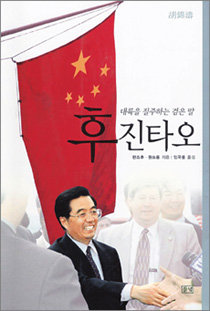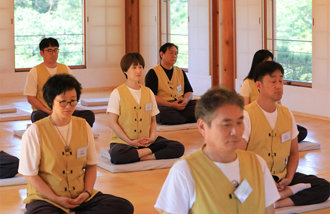Whos Hu?

Chinese President Hu Jintao is still relatively unknown to us. In fact, so little information is available to public that some coined a pun Whos Hu? as in the Whos Who directory. Chinese people dont know very much about him either.
This book is a biography painstakingly written by two Chinese journalist who tried to find the answer for the question: Who is Hu? This book is an unofficial biography, which doesnt reflect the Chinese governments intervention. The authors precisely examine the authenticity of the Chinese governments official records and the published news reports about him.
One good example is his birthplace. Depending on sources, Hu was either born in Jixi, Anhui Province or Taizhou, Jiangsu Province. According to the authors investigation, he was born in Shanghai and raised in Taizhou. Jixi was the place of domicile his family left in his great great-grandfathers time. What is the reason of confusion over his birthplace? Since he was born into a very rich Shanghainese family in 1942, it wouldnt work well for him to have a capitalist family in a socialistic society. He lost his mother as a young boy so he grew up in Jiangsu Province with his grandmother. But he felt uncomfortable about the fact that among all seven members of the Standing Committee of the Political Bureau of the CPC Central Committee, three peopleJiang Zemin, Li Lanqing, and himselfwere from Jiangsu Province, so he has been hiding it. However, Anhui Province is traditionally reputed for its commence and academic heritage, and this could enhance his image as a leader, so he didnt mind it if he was known to have been born there.
In 1959, when he was only 17, Hu Jintao entered the Water Conservancy Engineering Department of Tsinghua University. His alma mater later became the best springboard for his success. Tsinghua University was developed as a science and engineering oriented institution according to Mao Zedongs instruction. Because of its practical tradition, Tsinghua University produced relatively fewer casualties of bloody ideology struggles than Beijing University which has a strong liberal arts tradition. As a result, graduates of Tsinghua took over Chinese politics.
Surprisingly, his artistic talent played a big role in him being elected as a senior member of the Communist Youth League. He was a talented dancer, sometimes dubbed the charming prince on a white horse, and was an active member of a choir. Those artistic talents were very useful tools in achieving a revolution at that time. His dance moves also helped him win the heart of his wife, Liu Yongqing, who was then a daughter of an influential member of the Communist Party.
In that light, Hu Jintaos image is apparently different from that of previous Chinese leaders. He is down-to-earth and considerate so that he takes care of people who he got to know. During the Cultural Revolution, he volunteered to work in a dam construction site in the remote western area of Gansu Province to be with his wife, but when he was the secretary of the CPC (Communist Party of China) Tibet Regional Committee, he showed his determination by declaring martial law without hesitation when a riot occurred. Most of all, we can see his strength in this example; while he was competing in the successor group with Wang Zhaoguo, who was called born to be number one, Hu , who was always called born to be number two, quietly took over power and finally surpassed his rival.
Apparently, Hu Jintao has been a lucky man. When he took his first step into the central government, Deng Xiaoping ordered a thorough generation shift.
At age 40, he was brought from Gansu Province to the central political scene as the youngest Central Committee Member candidate in 1982. The fellow newcomers who were introduced to the seniors of the Communist Party with him were Jiang Zemin, Li Peng, and Li Ruihuan, 55, 53, and 52 years old at that time respectively, and they formed the core of the third generation leadership group.
Hu has been always promoted by his direct boss and was never a prominent figure. Jiang Zemin once knelt down in front of Deng Xiaoping to change a television channel, showing his subservience, but Hu never did anything like that. In that sense, the groundless envy of the Chinese leadership groups keen eye to discover outstanding people should be corrected.
As in Tsinghua University s School Spirit , Cultivating Virtue To Carry To The Outer World (自强不息 厚德載物), for a gifted person, how he cultivate himself is even more crucial than how he is cultivated by others.
Original title is Hokeumdojeon (胡錦濤傳) (2002).
Chae-Hyun Kwon confetti@donga.com







